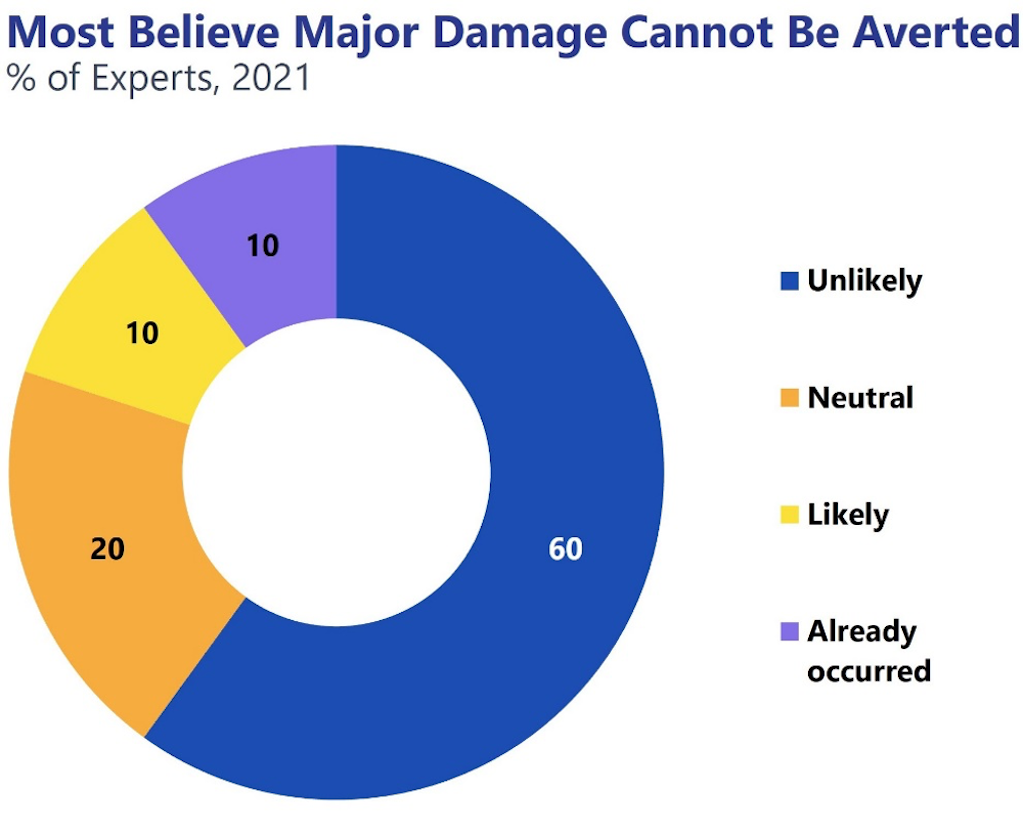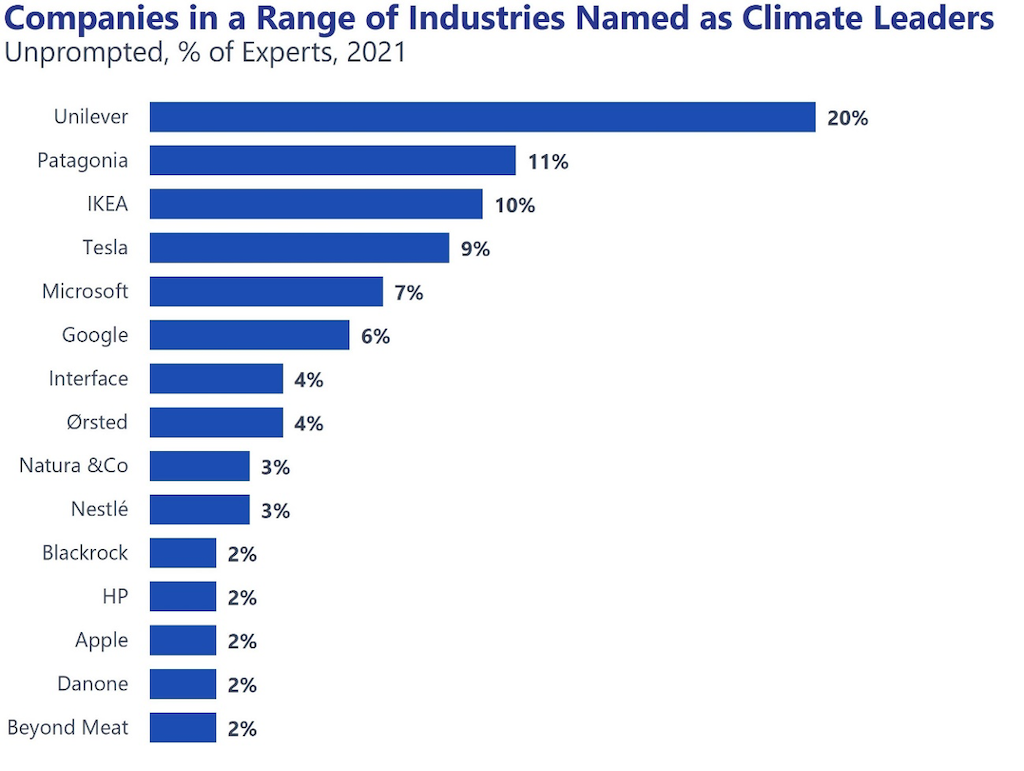3 Mins Read
Around 70% of the world’s top sustainability experts remain pessimistic about the future of the planet and humanity’s ability to avert disasters due to climate change. In a new poll, the experts warned of the slow pace of climate action and the low prospects of the world meeting the Paris agreement goals.
The majority of the world’s leading sustainability experts don’t believe that climate action is happening fast or seriously enough to avert major damage. Experts also highlighted the need to raise public understanding and promote engagement with the most pressing planetary threat today in order to meet the goals under the Paris accord.
70% expect bleak climate change future

The survey found that 70% of sustainability experts think it is unlikely that major damage from climate change will be averted. Almost three-quarters (74%) said that progress has been “minimal” when it comes to countries’ advancements on the Paris accord goals.
These findings were revealed in a new report, Responding to Humanity’s Code Red, published by GlobeScan and environmental consultancy ERM’s Sustainability Institute. Analysts tracked global expert opinions on the sustainability movement since 1994 and included insights from more than 500 sustainability experts from 70 countries for this edition.
“Like the IPCC Sixth Assessment Report released in August of this year, the views of our expert survey respondents underscore the gravity of the climate crisis and the urgency of action,” commented Mark Lee, director of the Sustainability Institute at ERM.

Governments and businesses must step up
While the experts highlighted the need to raise public awareness about climate change, they placed the onus on governments and businesses to drive forward action towards achieving the Paris goals.
Rating the importance of actors, the poll found that experts believe national governments should bear the most responsibility, followed by the private sector, investors, and local governments. While governments need to set out nature-based solutions, agree on bolder emission-reduction targets and carbon market mechanisms during COP26, corporations must take leadership in the net-zero economy transition.

Nearly 6 in 10 (59%) of sustainability professionals say that companies “must” reach carbon neutrality by 2030, or earlier. They emphasised the need to adopt renewable energy and pursue science-based targets with effective monitoring mechanisms, as well as adopting circular business models as the best ways for companies to take action.
Some of the brands named as leaders in sustainability included Unilever, Patagonia, Tesla, IKEA and Google. Unilever, for instance, has already vowed to carbon label all 75,000 of its products globally, while IKEA is making active efforts to shift to circular models such as recycle, resale and reuse, as well as promoting sustainable plant-based meals.
Current progress is ‘nowhere near enough’

Sharing more about the findings of the report, GlobeScan CEO Chris Coulter said that the experts’ ultimate conclusion is that “progress in addressing the climate crisis is nowhere near enough.”
“Governments must lead with even greater ambition in Glasgow,” Coulter continued. “A framework for nature-based solutions is of the utmost priority, [and] companies must decarbonize at an even greater pace than recent unprecedented net-zero commitments of the past few years.”
Lee agreed, commenting that global experts “beseech governments to lead on policy and suggest the private sector is best positioned to demonstrate how quickly it is possible to decarbonize.”
All images courtesy of Unsplash, unless otherwise credited.




